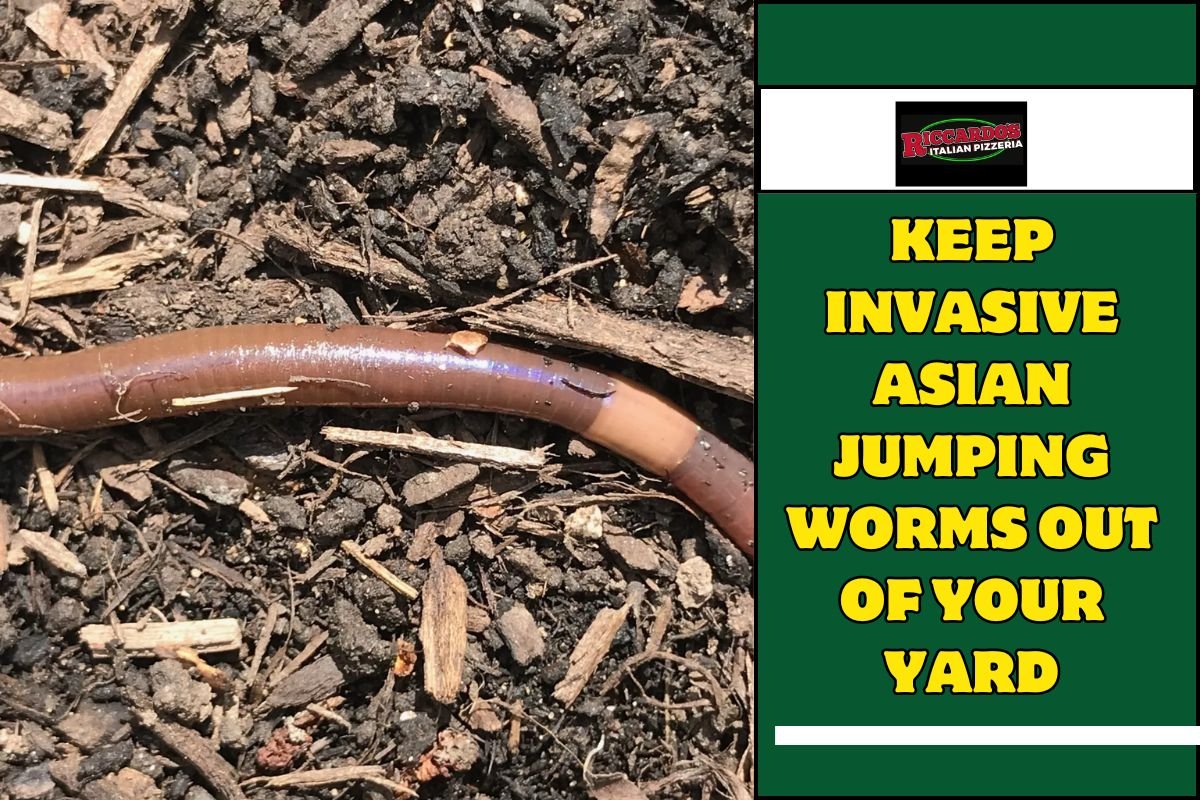Keep Invasive Asian Jumping Worms Out of Your Yard: American gardeners and environmentalists are increasingly concerned about invasive Asian jumping worms (Amynthas spp.) in gardens and natural areas.
Keep Invasive Asian Jumping Worms Out of Your Yard
Crazy worms, also known as snake worms, are voracious organic matter consumers that can quickly alter soil structure and cause significant ecological damage. Keeping ecosystems healthy requires preventing their spread. Here are some ways to keep these invasive worms out of your yard.
Understanding Asian Jumping Worms
The sale of plants and soil products may have brought Asian jumping worms to North America from East Asia. Asian jumping worms are more destructive than Earthworms because of their unique traits:
High Reproduction Rate: Asian jumping worms reproduce quickly, establishing new populations.
Aggressive Feeding Habits: The rapid consumption of organic matter by these worms depletes leaf litter and other soil nutrients.
Soil Disruption: Loose, granular aggregates from Asian jumping worms can increase erosion and disrupt plant root systems.
To stop Asian jumping worms and protect your yard’s ecosystem, take precautions.
Also See:
Margherita Pizza – Delicious Recipe Ever
Prevention Strategies
Educate Yourself: To identify Asian jumping worms, learn their traits. Find worms with dark, shiny, smooth skin that resembles fishing line. Asian jumping worms move quickly and “jump” when disturbed.
Avoid Importing Soil: Unknown soil or mulch may contain Asian jumping worm cocoons or adults. Choose local materials to avoid invasive species.
Practice Good Hygiene:Keep gardening tools, equipment, and shoes clean after working in infested areas. These items can carry Asian jumping worm cocoons and adults, spreading them.
Monitor Your Yard: Check for Asian jumping worms in your yard, such as altered soil texture, reduced leaf litter, or adult worms. Early detection reduces ecological damage and population growth.
Management Techniques
Asian jumping worms may be in your yard. Try these methods:
Hand Removal: Remove adult worms from soil and vegetation. Despite being laborious, this method can reduce localized populations in small garden beds.
Mulch Management: Reduce leaf and grass clipping mulch, which Asian jumping worms feed and breed on. To avoid worms, use gravel or landscape fabric as mulch.
Soil Amendments: Add wood chips or straw to the soil to deter Asian jumping worms. These materials improve soil structure, accommodate native earthworms, and deter invasive species.
Chemical Control: Since chemical treatments may harm non-target organisms and soil health, use them sparingly and as a last resort. Discuss the best products and application methods with a pest management expert.
Community Involvement
Asian jumping worms must be stopped by community action. Participate in local conservation, invasive species monitoring, or educational outreach to raise awareness of these worms and promote responsible gardening.
You can protect your yard and surrounding natural areas from Asian jumping worms by taking proactive measures. Protect our environment from invasive species by staying informed, vigilant, and working together.
Finally, Asian jumping worms threaten US ecosystems and gardens. Education, proactive measures, and community involvement are needed to stop them. Follow these steps to keep invasive Asian jumping worms out of your yard and protect local ecosystems.
